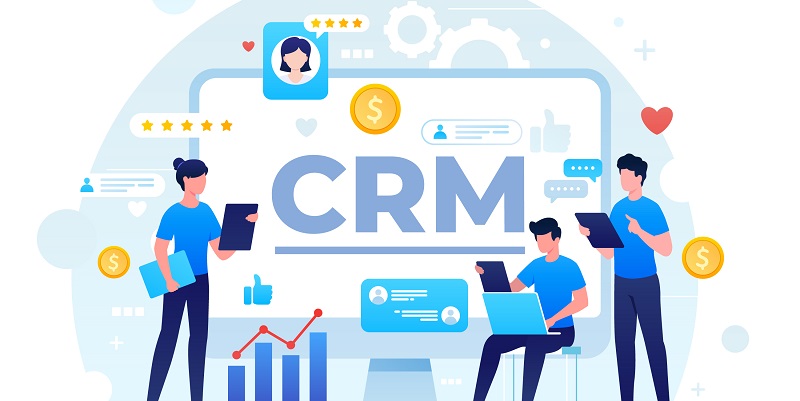In today’s competitive job market, companies are constantly searching for innovative ways to attract top talent. Recruitment Customer Relationship Management (CRM) software has emerged as a game-changer, revolutionizing the way companies manage and engage with candidates. In this article, we will explore the key benefits and features of CRM software in recruitment and discuss its potential future trends.
Building Meaningful Relationships with Candidates
A well-designed CRM system empowers companies to build and maintain meaningful relationships with candidates. It allows recruiters to centralize candidate information, capture important conversations, and track interactions. By having a 360-degree view of each candidate, recruiters can provide a personalized and tailored experience that acknowledges their unique skills, experiences, and aspirations.
Optimizing Candidate Sourcing
CRM software optimizes candidate sourcing by categorizing candidates based on their skills, experience, and qualifications. This categorization allows recruiters to quickly identify and target candidates who best match the requirements of open positions. Through the use of intelligent algorithms, CRM software can also suggest potential candidates based on past successful hires.
One of the key advantages of CRM software is its ability to enable personalized, timely, and automated communication. Recruiters can create and send targeted email campaigns, schedule follow-ups, and set reminders to keep candidates engaged throughout the hiring journey. By sending relevant and personalized messages, companies can significantly improve candidate engagement and foster stronger relationships.
Compiling and Analyzing Recruitment Data
Recruitment CRM software compiles and analyzes recruitment data, offering valuable insights into the effectiveness of various sourcing channels, interview processes, and more. By gathering and analyzing this data, companies can make data-driven decisions to optimize their recruitment strategies and improve their overall hiring success rate.
Benefits of using CRM software
By intelligently categorizing candidates based on their skills and qualifications, CRM software streamlines the candidate sourcing process. Recruiters can quickly identify suitable candidates for specific roles, saving time and effort in the screening and shortlisting stages.
CRM software enables personalized and timely communication, ensuring that candidates stay engaged and informed at every stage of the hiring process. Automated reminders and notifications keep candidates updated on their application status, interview schedules, and other relevant information, fostering a positive candidate experience.
By analyzing recruitment data, CRM software provides valuable insights into the effectiveness of various recruitment channels, interview processes, and candidate assessments. Companies can identify which sourcing channels yield the best results, refine their interview techniques, and make data-driven decisions to improve their overall recruitment strategies.
Integration and customization of CRM software
Modern CRM solutions are highly customizable and can be seamlessly integrated with existing HR systems, such as Applicant Tracking Systems (ATS). This integration enables a smooth flow of data between systems, minimizing the need for manual data entry and ensuring a centralized and comprehensive view of each candidate.
Customization Options for Specific Company Needs
Recruitment CRM software offers customization options to align with specific company needs and workflows. From customizable fields and tags to workflow automation and analytics dashboards, companies can tailor the CRM software to meet their unique requirements, improving efficiency and productivity.
Common roadblocks to CRM implementation
Implementing a CRM system requires a change in processes and mindset, which can be met with resistance from recruiters and other stakeholders. Companies should invest in proper training and change management strategies to help employees embrace the new system and understand its benefits.
Integrating CRM software with existing systems can present technical challenges, such as data compatibility and system interoperability. It is essential to involve IT experts and collaborate closely with software providers to ensure a smooth integration process.
As CRM software contains sensitive candidate data, ensuring data security and privacy is vital. Companies must implement robust security measures such as data encryption, access controls, and regular audits to protect candidate information from unauthorized access and breaches.
Future trends in CRM software development
Artificial Intelligence (AI) is poised to transform the recruitment industry by automating and enhancing candidate matching processes. AI-powered CRM software can analyze vast amounts of data to identify patterns, predict candidate success, and make accurate recommendations for job matches.
CRM software will increasingly leverage predictive analytics to help companies anticipate their future hiring needs. By analyzing historical data, market trends, and business insights, CRM software can proactively identify talent gaps and recommend recruitment strategies to address them.
Virtual Reality (VR) technology holds great promise for immersive candidate assessments. CRM software can integrate VR capabilities to create realistic and interactive assessment scenarios, allowing recruiters to assess candidates’ skills and fit in a more engaging and objective manner.
Recruitment CRM software has emerged as a powerful tool for companies looking to optimize their hiring processes. By building meaningful relationships with candidates, optimizing candidate sourcing, enabling personalized communication, and analyzing recruitment data, CRM software empowers companies to make informed decisions, improve candidate experiences, and drive overall recruitment success. As the field of CRM software development continues to evolve, integration with AI, predictive analytics, and virtual reality will open up new possibilities for even more advanced and efficient candidate management.

